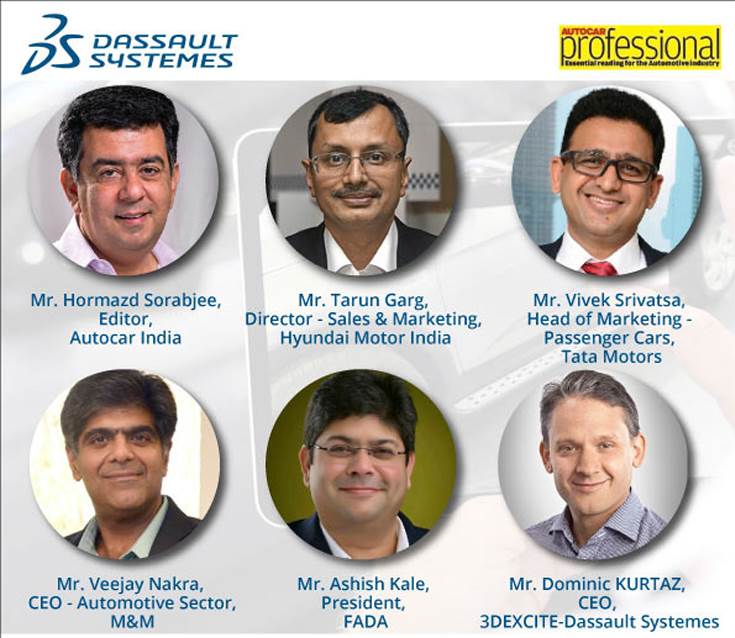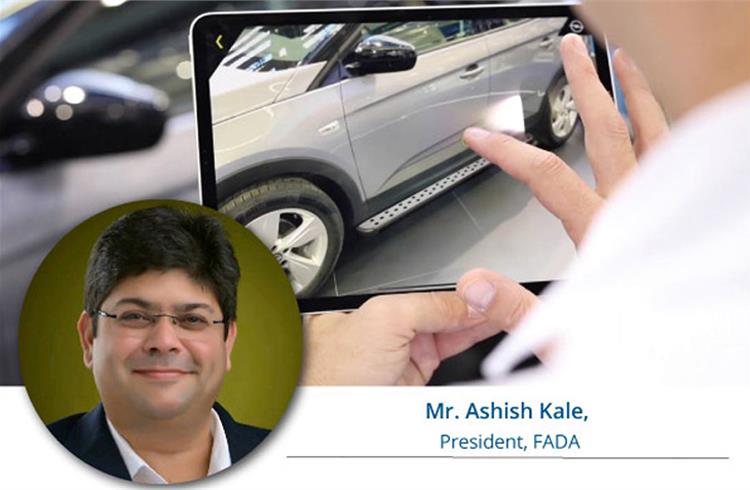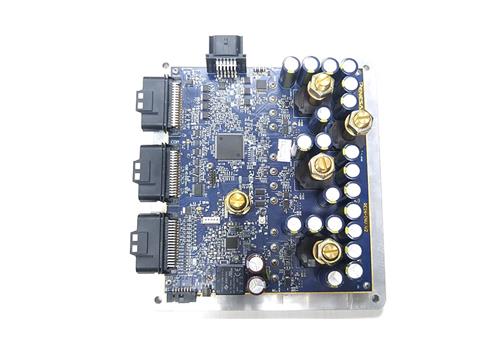FADA's Ashish Kale: ‘Dealers are a resilient lot and we will adapt to new methods of selling’
The president of the automotive dealer body shares his views on impact of Covid-19, importance of digitalisation as a tool, challenges and opportunities, and why customers continue to prefer taking car deliveries personally.
The ongoing pandemic has changed the way consumers search, explore and purchase cars and two-wheelers. However, for the Indian automotive industry, where buying a vehicle still remains an emotional and family affair, Ashish Harsharaj Kale, president, Federation of Automobile Dealers Association of India (FADA) believes dealerships will continue to be the interface between the customer and OEMs.
Kale was speaking at a virtual conference titled ‘Future of Automotive Retail – Inspiring Digital Experience For Virtual Engagement' hosted by Autocar Professional, which saw veterans of Indian automotive industry share their thoughts on the future of automotive retail.

The panelist also included –
- Dominic Kurtaz, CEO, Dassault Systemes 3DEXCITE
- Veejay Nakra, CEO, Automotive Divion, Mahindra & Mahindra
- Tarun Garg, Director, Sales & Marketing, Hyundai Motor India
- Vivek Srivatsa, Head – Marketing, Passenger Vehicles Business Unit, Tata Motors
- Ashish Harsharaj Kale, President, FADA
It was moderated by Hormazd Sorabjee, Editor, Autocar India.
Representing the dealer fraternity and outlining the challenges for them, Kale agreed that the ongoing Covid-19 pandemic has changed the way of life and the acceptance for digital retail has increased. He added that though the digital enquiries had started picking up in the past two-three year, the Covid-19 has just given it “a major boost, today customer is looking at safety and convenience, but going forward (post Covid-19) convenience will remain. That is an advantage to us, as without physical reach (without expansion) we will be able to tap more customers.”
He shared his perspective on the digital front stating that with smartphones becoming more affordable, and data becoming available, customers in urban, rural are more comfortable getting in touch with dealerships through phone and the digital route. While, the last-mile process of vehicle purchase will remain physical, as it is a high-ticket purchase, for a country like India..
“Buying a new vehicle is a family decision, for Indians it is also an emotional decision. Physical will be there, the customers will look at trust and bond with the dealership and its owner, the brand plays a big role, but dealership team too plays a key role,” pointed out Kale.
While vehicle sales in India had almost come to a grinding halt during the lockdown, the gradual relaxation has allowed many dealerships to resume business. Kale said, that despite home delivery option for vehicle purchases, “customers are opting for physical delivery as it is a moment to treasure and cherish.”
Co-existence of digital and physical dealerships
The dealer fraternity head, believes that going forward physical infrastructure at dealerships will get more rationalised, the entire process of choosing, customising and selecting a vehicle may shift online. Kale added that customers are asking and sharing “brochures on WhatsApp, video calling and interacting with sales representatives. The process right upto the vehicle selection is seeing a major shift. But the final touch and feel of the vehicle will see physical interaction continue to remain. A seamless experience at physical showroom will be there, first will be digital, and then final transaction, process, relationship building and delivery will stay with physical. Going forward lot of rationalisation of dealerships, expansion will go digital.”
Responding to a query on will digitalisation and technology help dealers cut down on cost and processes? Kale explained that, “Without a doubt, it started pre-Covid, you had experience centre in places. Going forward you will now see many large showrooms. A lot of customisation will be offered by all OEMs (digitally), which cannot be offered at any single showroom. It will be more of experiencing the brand at these centres and forming relationship. We are now going to see 2 types of formats– digital and physical. We will need to offer more features on the digital side.”
“Going digital will help save cost, to reach the customer in rural areas of the country. No more will OEMs/dealerships would require a physical outlet. The digital tools that are available today, and with the customers getting comfortable to discuss, engage and get information digitally, that will also help reduce manpower cost. A lot of it has already shifting online, that trend will further increase. On manpower we will be able to save in the initial stages, and also help cut down in physical infrastructure. This will mean more experience centres, and smaller dealerships,” said Kale.
He emphasised that “Car buying in India remains a momentous occasion.” According to him, digitalisation has helped dealers get a lot of consumer insights in the form of data, which going forward can be utilised better. He said earlier dealerships depended on personal visits and approach to get consumer feedback. But now with follow up on calls or online, and makes it easier for referrals and reference. “Now they (customers) are more willing to share it, and now we need to utilise it much more, since the customer is looking at more interaction on phone or digital.”
Ensuring online presence and resolving disputes
As the world grows more digital, people have become more connected and information for any product or service can be found in a matter of seconds. This also means, companies and organisations need to pay a strong emphasis on pre- and after-sales services, to understand what the customers think about them.
Kale agreed that dealers are closely watching the digital space in terms of understanding the customer’s point of view, be it any product or service “they are measuring it on digital platforms, before they come to us. If an issue pops up online for our product or dealership, we take it up fast to resolve. Because it sometimes affects without us coming to know also, that is going to be an important factor. Vehicle purchase is a high-ticket, and emotional purchase, user rating and feedback play a key role. We are and will need to focus on it more, as it matters a lot to us.”
Speaking on the possibility of vehicle purchase going completely digital, Kale signed off by saying, “Technology is a huge enabler in bringing down costs. Large showrooms may not be as necessary going forward. Showrooms would be more for the experience and forming a relationship. Expect to see smaller formats of showrooms and greater digitalisation in future. As long as emotions, experience, trust continue to be key factors influencing the car buying experience, dealerships will be important. Dealers are a resilient lot and we will adapt to new methods of selling but still see car buying becoming completely digital is a long way off in India.”
READ MORE
Automotive retail: The digitally augmented physical experience
M&M's Veejay Nakra: ‘Once you get the taste of convenience, it is difficult to go back’
Hyundai Motor India’s Tarun Garg: ‘We have to be empathetic with the customer’
Tata Motor's Vivek Srivatsa: ‘Thanks to digital space, OEMs can go anywhere in the country’
RELATED ARTICLES
Tata Elxsi-Renesas MCU for EVs enables cost optimisation, speedier time to market
Modular, scalable design of Motor Control Unit enables integration across diverse EV applications. Claimed to be reduce ...
Bosch hydrogen engine tech-powered truck to be on Indian roads this year
The global supplier of technology and services is betting big on both electromobility and hydrogen. While announcing the...
IIT Bombay inaugurates Arun Firodia Research Floor
IIT Bombay, one of India’s top technical and research institutions, honours Kinetic Group chairman Dr Arun Firodia, one ...





 27 Jun 2020
27 Jun 2020
 6684 Views
6684 Views





 Autocar Pro News Desk
Autocar Pro News Desk




